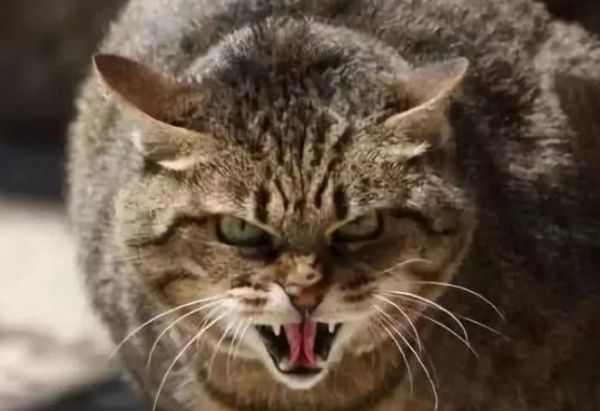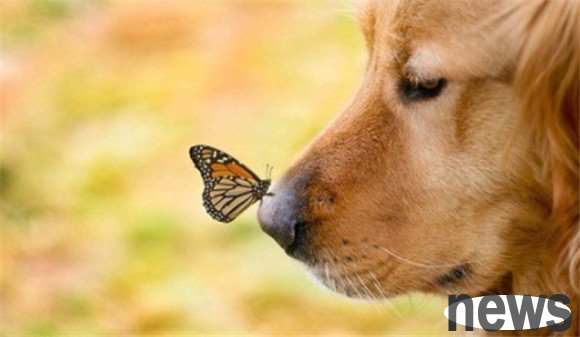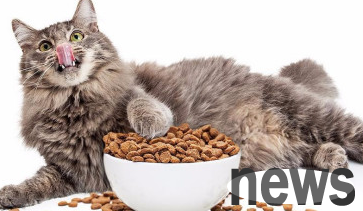Do dogs also understand medicine? The dog felt unwell and found herbal medicine for treatment
Does dogs also understand medicine?
According to a dog owner in Beijing, when his dog feels unwell, he will go to the roadside to eat grass. He does not eat all kinds of grass, but picks and chooses to eat. The grass he eats this time is ramie. In traditional Chinese medicine, ramie has medicinal value and can clear away heat, diuresis, prevent pregnancy and stop bleeding, and detoxify.

According to dog owners, their dogs have appetite after eating.
In fact, this is not the first time that dogs eat grass to heal themselves. Many owners have found that their dogs will take the initiative to eat grass when they are not feeling well. Moreover, they do not eat all grass, but only eat a small part of plants. After eating, the dog's illness can quickly improve.
So what is going on? Do animals also understand medicine?
Why do dogs eat plants?
In fact, dogs are inherently omnivores, but they prefer to eat meat. This is determined by their intestines.
In the process of evolution of organisms,
the digestive system will match the feeding habits.
For example, the stomach acid of herbivores is low, and microorganisms can live in the bodies of herbivores. The role of these microorganisms is to help the host decompose plants that are difficult to digest. On the other hand, the intestines of herbivores are longer, so that plants can stay in the body longer, and herbivores can absorb more nutrients.
Carnivores are just the opposite. Meat foods tend to carry a large number of germs. In order to eliminate germs, the stomach acid of carnivores is highly acidic.
On the other hand, meat food is easy to digest, and animals do not need a long intestine to absorb sufficient nutrients. Therefore, compared with herbivores, the intestinal length of carnivores is shorter.
If an animal had the stomach of a carnivore but fed on plants, its survival would be seriously challenged. For example: Giant pandas are obviously carnivorous intestines, but they feed on plants, which means they have to eat for a long time to obtain energy. In order to save energy, they give up long-distance migration and the ability to run fast (occasionally they will run fast, but most of the time they are slow).
In order to save energy, giant pandas also sleep for long periods of time. In other words, the fundamental reason why we see giant pandas either eating or sleeping is that their intestinal tract does not match their feeding habits.
There are also some animals that are omnivores, such as dogs. The gastric acid strength of omnivores is between that of herbivores and carnivores, as is the length of their intestinal tract. However, although they are omnivores, different omnivores have different preferences for plants or meat. For example, brown bears are omnivores, but they prefer plants, which account for more than 60% of the total food. Although wolves are also omnivores, wolves prefer to eat meat.
Dogs were domesticated from wolves. However, during their interaction with humans, a large part of the dog's diet consisted of plants. This is not difficult to understand. After all, the ancients did not feed dogs that much meat.
Compared with wolves, dogs have smaller stomachs and longer digestive tracts, with the most obvious increase in the length of the cecum and colon, which means that the fiber content in the food dogs eat increases.
It’s just that although dogs have an increased proportion of plants in their food compared to wolves, they still prefer meat food, so they rarely eat grass actively when going out for a walk.
Why do dogs take the initiative to eat grass when they are sick?
A small number of dogs eat grass just for fun, but most of the time a dog eats grass, which means it is sick.
Dogs have a lot of hair. When grooming, they may accidentally eat the hair into their stomachs. The hair is difficult to absorb. If it is not excreted in time, the hair will accumulate, causing the dog to suffer from indigestion or anorexia. At this time, they will eat a small amount of plants. Plants are rich in fiber and are very difficult to digest, but they can promote gastrointestinal motility and help dogs defecate.
Another possibility is that the dog lacks nutrition. Although the nutrition of the dog food is balanced, if the dog eats improperly or suffers from certain digestive diseases, which makes it difficult to absorb some nutrients, it will cause the dog to eat grass.
When dogs have gastrointestinal discomfort, they will also eat grass to induce vomiting. However, if your dog often eats grass and vomits, you need to go to the hospital.
As for why dogs choose herbs to eat, it’s not that dogs understand medicine, but that many plants that can be seen everywhere have medicinal functions, such as plantain, pulla seedlings, etc. Secondly, these plants are easy to chew. After all, dogs’ teeth are not good at chewing.
In fact, there is no need to worry too much about dogs eating grass, because some puppies will also eat grass out of curiosity. One of the two puppies we raise especially likes to go to the balcony to chew weeds in flower pots, but there is no abnormal behavior.
Also note that if your dog is sick and eats grass, try to choose clean and pollution-free grass. In particular, avoid eating plants in areas that have just been sprayed with pesticides, as well as green belts and other heavily polluted areas.




